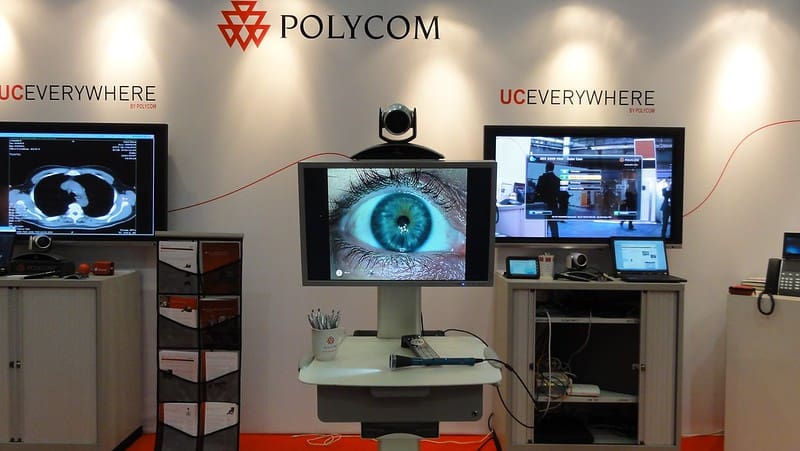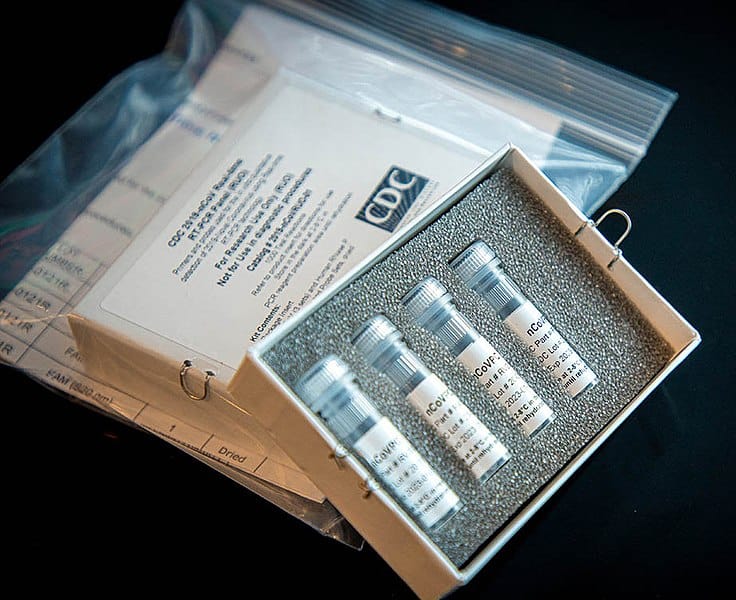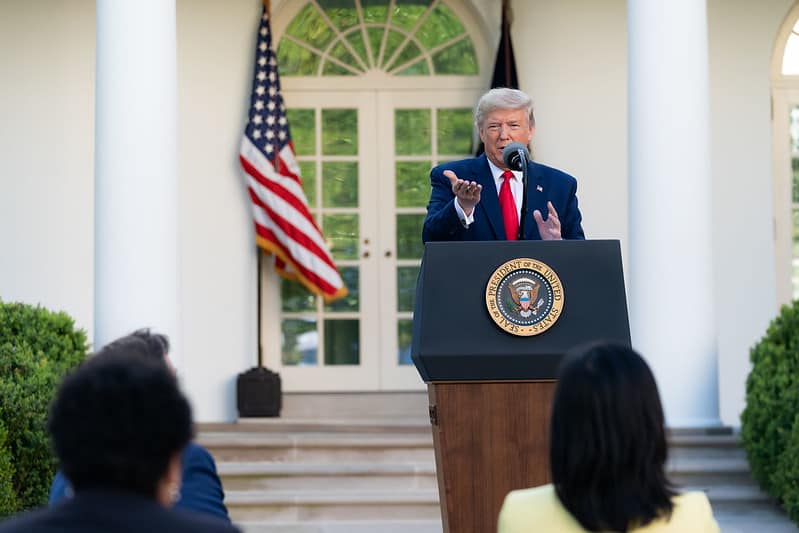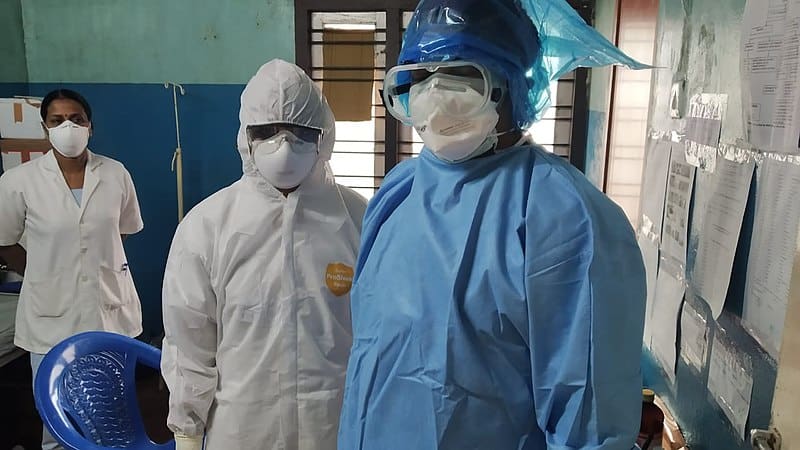As the coronavirus continues to ravage the world in what the United Nations’ chief calls a “global health crisis unlike any” since the second world war, the healthcare industry is increasingly finding new uses for blockchain in the pandemic war.
Blockchain’s immutability and transparency could help track the virus that causes Covid-19. As the global medical sector faces down the mounting challenge of overburdened hospitals, faulty testing and inconsistent data, the technology is also being used to help disburse payments more efficiently to those infected and to better monitor the spread of the disease through data.

See related article: As coronavirus infections skyrocket, blockchain speeds up health care claims and maps out epidemic
A shortage of equipment such as face masks and ventilators has also led to increased risks for health care workers. Blockchain could be used to ensure the integrity of the supply chain, to reduce problems of counterfeit equipment and protective gear.
Forkast.News interviewed Dr. David Hanekom, chief medical officer and North America president of Solve.Care, to find out how blockchain technology is being used to battle the pandemic as well as improve health care in general. Solve.Care is a global health care information technology company that uses blockchain to reduce fraud and costs to consumers.
The following interview has been edited and condensed.
See related article: Coronavirus prevention tips for the long haul: face masks, social distancing, hand wipes and more
The high cost of health care was already a big issue in the U.S. prior to the coronavirus crisis. How can blockchain technology help reduce costs for patients and the healthcare industry as Covid-19 spreads?
Blockchain technology has the power to grant patients the ability to understand their symptoms better in relation to the coronavirus. Telemedicine platforms with secure and trusted data systems can be leveraged to connect potential sufferers with qualified health care practitioners where they can provide them with clinical advice remotely. This action alone will reduce the number of people exposed to the virus. If fewer people are exposed, less are likely to have a serious reaction and therefore there will be a reduction in the volume of those requiring emergency care in hospitals. It’s about providing an incentive to stay out of health facilities until necessary.

How else is blockchain being used in the fight against the coronavirus?
Blockchain has the ability to transfer data transparently and securely between different parties and stakeholders. This technology can be leveraged to share vital, clinical information from verified practitioners to patients in a confidential manner. During a pandemic such as this, it is necessary to reduce the number of people exposed to the virus. By switching to telemedicine platforms, those experiencing mild symptoms of the disease can access practitioners remotely, reducing the number of people entering hospitals and health care facilities.
The second area where blockchain can be leveraged is supply chain management. It is no great secret that the current suppliers of personal protective equipment, such as face masks, are struggling to meet rising, global demand. The traditional global distribution of supply chain networks also makes proper monitoring of quality and supply particularly difficult in times of global crisis. However, blockchain can greatly assist in the verification of products to ensure that they are coming from legitimate suppliers.
The U.S. has a unique health care system compared to the rest of the developed world. What are some ways that blockchain can be used to improve the health care and insurance system in the U.S. in general?
In contrast to other health care systems across the world, it is the hallmark of the U.S. care delivery system to deploy all the resources necessary to save a life. The U.S. is perfectly geared towards providing intensive care to individual patients with very serious conditions, which is why the cost of care is extremely high.
However, the sheer volume of people who may require this degree of medical attention will increase due to the rapid spread of Covid-19. In addition to spreading already limited resources even more thinly, the government is now beginning to understand the risk that this poses for those working on the front lines specifically. These workers are included in the high risk category, meaning more extreme measures will have to be taken apart from social distancing. Distributed Ledger Technologies (DLT) such as blockchain can help in this regard, by ensuring safer and more effective deployment of resources. For example, implementing telemedicine platforms would help to curb the number of patients that health care workers are exposed to and make it possible for them to continue to treat patients.
Is the coronavirus easier or harder to fight in the U.S. compared to other places? What do you see as the strengths and weaknesses in the U.S. when it comes to fighting this pandemic, compared to other countries or regions?
Fighting the coronavirus will be a challenge regardless of the strengths or weaknesses of individual health care systems. The main priority globally lies in reducing the number of people who become exposed to the illness at any given time. It’s important that those who are mildly infected are able to manage their symptoms remotely to allow those who require urgent care access to hospitals and care facilities.
We’ve seen reports of the CDC’s botched tests kits and a lack of testing available for people in the U.S. Could blockchain be used to prevent situations like this in the future?
Blockchain has the ability to monitor and manage supply chain systems without fault, using real-time tracking technology from the supplier to the consumer. It also has the ability to verify legitimate sellers of these testing kits as well as reduce the overall costs associated with the movement of the product through the supply chain. Leveraging this technology could assist in guaranteeing the quality of testing kits as well as making sure that they are distributed in the correct quantities, according to regional demand.

Some CDC scenarios predict that there could be 2.4 million to 21 million coronavirus patients in the United States who would require hospitalization. But the U.S. has only 925,000 staffed hospital beds. How could blockchain be used to track the infected and match them with available beds?
Although this is the anticipated number of people who will require hospitalization, not all of those who require this level of care will arrive on the same day. Looking back, there have been hotspots where the number of those affected have spiked and have eventually fallen again, resulting in a varied and distributed demand at different times.
We have seen over the past few weeks that many resources have been allocated to this cause with all health care workers on stand-by to treat anyone affected by the illness. By utilising secure telemedicine platforms, those infected are more likely to provide more accurate information regarding who they have been in contact with and where they have been over a certain period of time. Health care providers can then utilise blockchain to create an ongoing record of the number of beds available in the hospital in which they are working. Those who are infected and displaying severe symptoms can be matched to available beds in their area through the telemedicine platform.
We’ve seen how coronavirus information from the ground in China was censored and manipulated by state actors. How could blockchain improve how doctors and medical staff submit data and verify the information for accuracy?
The primary issue here is whether or not we can trust a central authority with our information when we have no insight into what they are doing with our information. It’s important that citizens have the power to decide who they share their information with. With blockchain, users have authority over their own information — where they can choose to share the information, to what extent, and on what terms. This would give health care staff the ability to share information without the risk of it being removed or changed and with the immutable blockchain standing as a guarantee of its veracity.
What are the limitations to this technology?
Two obvious limitations to blockchain technology are that it is still very new, and it can’t do everything.
Firstly, blockchain technology is only a little over a decade old. As a result we’re still in the phase where health care professionals are exploring its potential and building proofs of concept before proceeding to full roll-out. In time, once mass adoption occurs, we’ll be able to look back and truly assess its impact.
The other thing to bear in mind is that blockchain isn’t a cure-all for every issue affecting modern health care systems. It works very well in favour of managing personal health records that hold all the essential information that an individual and their circle of care may require to manage their health care journey.
What is your take on President Trump’s emergency policies to prevent the spread of the virus and to support the health care system?
I believe Congress has acted suitably towards preventing the continued spread of the virus and putting the welfare of the community first. The U.S. government has implemented a number of measures to protect their citizens during this time, particularly with regards to providing funding to those who are unable to work due to the virus. They have really stepped up by rewarding businesses who have closed and those who are following protocol. Loans have been given out by the government and they have committed to paying for testing and providing assistance with Covid-19-related hospital bills. Initiatives like this display a clear understanding of the gravity of the situation and the critical need to provide financial relief to citizens and businesses, to keep the ecosystem alive during this uncertain time.

Tracking down those infected and people they’ve been in contact with is important for preventing the spread of the virus. How can blockchain be facilitate tracking?
Similarly to how blockchain is leveraged in the supply chain, we can use a similar approach to tracking those who have been infected by the disease and who they may have been in contact with.
There have been reports of people seeking testing and receiving enormous bills for doing so. What can be done regarding the uninsured and underinsured in the U.S. who might delay getting tested or flout precautions such as social distancing due to a fear of economic blowback (i.e. delivery people, cashiers, Uber drivers)?
The government has pledged to cover any medical fee that has been incurred due to the coronavirus, whether the individual is insured or not. This is necessary action that they need to take to reduce mortality rates over the coming weeks and months by ensuring that people get the medical assistance they require — regardless of their financial situation.
Social distancing measures should be taken into account for those who can. Telemedicine platforms can be leveraged for those who don’t wish to visit care facilities to be tested, or those who deem it not necessary due to mild symptoms. The fewer people exposed to those infected, the better we will be able to manage this situation.
According to the CDC, the prevalence of obesity in the U.S. was 42.4% in 2017 to 2018. Add to that other common pre-existing conditions such as diabetes, what impact could that have on the mortality rate of those infected with coronavirus in the U.S.?
The coronavirus poses a great risk to those with pre-existing chronic diseases. Although other countries may not have a high level of these diseases specifically, they may have other diseases or factors such as poverty that contribute to the number of high-risk individuals. Governments will have a tailored approach to handling this pandemic depending on the contributing factors present in their country.
What role can blockchain play in future public health crises?
Blockchain has the ability to drastically reduce some of the anxiety and fear around getting infected by the virus. Providing a channel for individuals to be able to connect with qualified practitioners, giving them details regarding their risk and symptoms, and receiving instant feedback, will reduce the number of people going straight to the emergency room when they display some of the symptoms associated with the illness. Most importantly, care professionals will have the ability to monitor their condition remotely, and empower individuals with information to help them further understand their condition.
As mentioned previously, blockchain can be used in the management of supply chains with regards to medical equipment. Monitoring supply chains in terms of the supply, demand, and distribution of stock is highly important in times of crises, as we are currently witnessing the lack of personal protection equipment available to medical workers globally. Price gouging is also a huge issue when certain items are in high demand. A better managed supply chain would avoid this scenario completely.

Do you see differences between how health care is (or isn’t) using blockchain in different parts of the world?
Unfortunately, blockchain is such a new technology that it’s still too early to determine the impact that it would have on any health care system around the world at this point in time. However, its potential for good is enormous, so hopefully we’ll see health care systems around the world availing of it before long.
What are the most impactful ways that blockchain is being used in health care now?
In the U.S., the current payment system is fee-for-service based, where doctors are rewarded for the number of people they see and the amount of procedures they carry out. With blockchain, this will shift towards a value-based care model where rewards are based on the patient outcome. This will shift the focus away from the quantity of patients that are seen to, and towards the quality of care that the patient receives.
Blockchain is also allowing people to be more open in sharing their data and information. Once they are in control of who they share their information with and to what extent, people are more likely to provide all the details necessary to get the care that they need to get better outcomes.
The current pandemic will likely fundamentally change the manner in which information is accessed and distributed amongst trusted stakeholders in the future. I can envision a time where individuals control their health information, choosing to share it with stakeholders they trust, in circumstances where such sharing is beneficial to each person and society in general.




